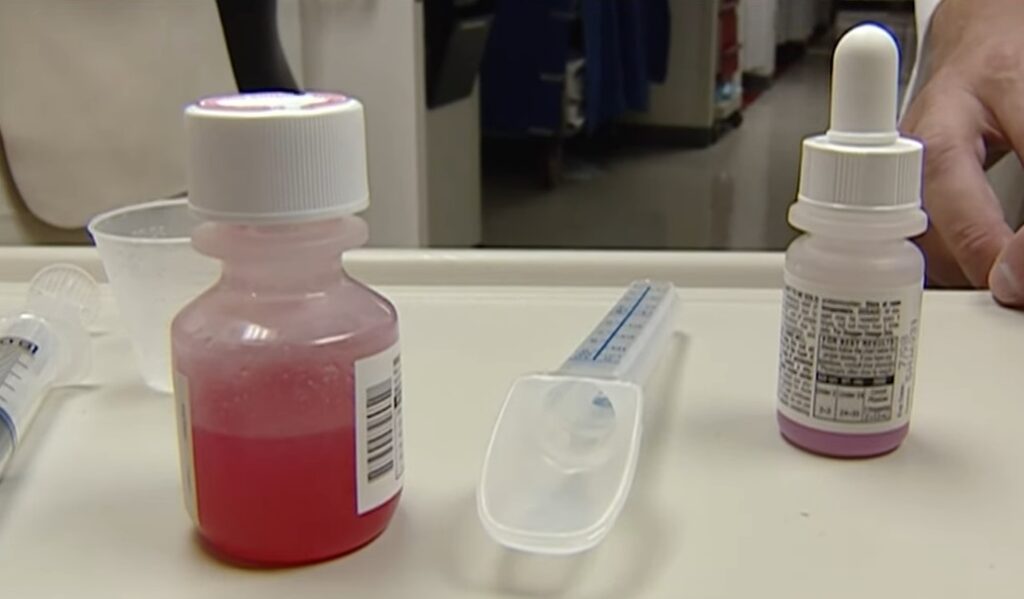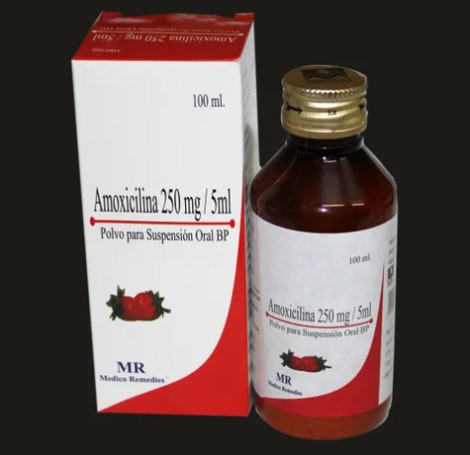Yes, amoxicillin suspension needs to be refrigerated. Amoxicillin is an antibiotic medication used to treat a variety of bacterial infections. The liquid form of the drug must be kept in the refrigerator at all times because it can lose its potency if left out for too long or exposed to extreme temperatures.
Additionally, refrigeration keeps bacteria from growing and possibly contaminating the medicine.
If you need to take your amoxicillin on-the-go, make sure you keep it cool with an ice pack or other cold source until you are able to get home and put it back in your refrigerator as soon as possible.

Why Does Liquid Amoxicillin Expire in 14 Days?
Liquid amoxicillin is a form of the antibiotic commonly prescribed to treat bacterial infections. The active ingredient in this medication, Amoxicillin Trihydrate, can degrade over time and become less effective if not stored properly.
Therefore, it’s important to know that liquid amoxicillin has an expiration date—typically 14 days after it’s been opened—and should be discarded after that point in order to ensure its efficacy.
So while liquid amoxicillin may seem like a convenient way to take your medication, it’s important to remember that it needs to be used within the recommended timeframe for maximum effectiveness.
Amoxicillin Left Out of Fridge Overnight
Leaving amoxicillin out of the refrigerator overnight is not recommended as it can reduce its effectiveness. Studies have shown that when stored at room temperature, amoxicillin loses potency after only one hour and should be discarded if left out for more than 8 hours.
To ensure your medication stays effective, always store your amoxicillin in a cool place away from direct sunlight or heat, such as the refrigerator.
Does Children’s Amoxicillin Need to Be Refrigerated?
No, children’s amoxicillin does not need to be refrigerated. It is important to store the medication at room temperature, away from direct sunlight and heat. Keep the medicine in a secure container and out of reach of children and pets.
If you are unsure about how to properly store this medication, consult your doctor or pharmacist for further instructions.
Amoxicillin Left Out of Fridge NH’s
Leaving amoxicillin out of the fridge is not recommended by the NHS as it can cause a decrease in potency. Amoxicillin should be stored at temperatures between 8°C and 25°C, preferably in its original container.
If left out for too long, the active ingredients may start to denature and become less effective at fighting bacteria.
It’s important to follow storage instructions carefully to ensure maximum efficacy of your medication.
Amoxicillin Suspension for Child
Amoxicillin Suspension is an antibiotic used to treat bacterial infections in children. It works by stopping the growth of bacteria and can be used to treat a variety of conditions such as ear infections, throat infections, urinary tract infections, and skin infections.
The suspension form should be shaken well before use and may need to be taken with food or milk depending on how it affects your child’s stomach.
As with any medication, speak with your doctor or pharmacist if you have any questions about the dosage or side effects of Amoxicillin Suspension for Child.

Which Antibiotics Need to Be Refrigerated?
When it comes to antibiotics, proper storage is essential for ensuring their effectiveness and safety. Many types of antibiotics need to be refrigerated in order to remain potent. This includes liquid amoxicillin, as well as other extended-release or suspension forms of medication such as cefdinir and azithromycin.
It is important that these medications are stored between 36-46 degrees Fahrenheit in a refrigerator away from direct sunlight or heat sources. Failure to do so could result in the degradation of the antibiotic’s efficacy.
Amoxicillin Suspension Storage
When storing amoxicillin suspension, keep it in the refrigerator at temperatures below 25°C (77°F). It can also be stored at room temperature for short periods of time. Be sure to shake the liquid well before every use and discard any unused portion after 14 days.
Additionally, check with your pharmacist or doctor for proper storage instructions if you have questions about how to store amoxicillin suspension properly.
Does Amoxicillin And Clavulanate Potassium Need to Be Refrigerated?
No, Amoxicillin and Clavulanate Potassium does not need to be refrigerated. This medication should be stored in a cool, dry place away from direct light and heat.
If the product has been opened or mixed with other ingredients, it must be used within 14 days of being prepared according to the manufacturer’s instructions.
Why Does Amoxicillin Suspension Need to Be Refrigerated?
Amoxicillin suspension needs to be refrigerated for a few reasons:
- To maintain the stability of active ingredients – Refrigeration helps prevent the breakdown of particles and preserves their effectiveness.
- To reduce bacterial growth – Bacteria can grow rapidly at room temperature, but cold temperatures slow bacteria growth.
Refrigerating amoxicillin suspension keeps it free from contamination that could cause adverse effects when ingested. Additionally, refrigeration extends its shelf life so it can be used for longer periods of time without having to dispose of unused medication.
How Long Can You Leave Liquid Amoxicillin Unrefrigerated?
Liquid amoxicillin should not be left unrefrigerated for more than one hour. The following points summarize this time frame:
- Liquid amoxicillin must be refrigerated after opening.
- It should not be left out of the refrigerator for longer than one hour.
- If it has been out of the fridge for longer, discard it immediately and do not take it as medication.
It is important to follow these guidelines to ensure that liquid amoxicillin maintains its effectiveness and safety when used as a treatment option.
Does Liquid Amoxicillin Go Bad If Not Refrigerated?
Yes, liquid amoxicillin will go bad if not refrigerated. It is important to store any form of antibiotics in the refrigerator so that they remain effective and safe for use.
Reasons why liquid amoxicillin should be refrigerated include:
- Heat can cause it to breakdown quicker, reducing its effectiveness.
- Bacteria can grow more rapidly outside of a cool environment, making it unsafe to consume.
- If left at room temperature for an extended period of time, the drug may become contaminated or expire before its intended use date.
Therefore, it is best practice to keep all forms of amoxicillin in the fridge until needed; this will ensure that it remains effective and safe for consumption when taken as prescribed by a doctor or healthcare provider.
How Do You Store Liquid Amoxicillin?
Liquid amoxicillin should be stored in a cool, dry place. It is important to keep the medication out of direct sunlight and not expose it to extreme temperatures:
- Store at room temperature (59°F – 86°F)
- Keep away from heat or open flame
- Do not freeze
- Protect from light
- Tightly close container after each use
It is also essential that liquid amoxicillin remain refrigerated if prescribed by a doctor. This will help ensure its potency and effectiveness until the expiration date indicated on the bottle.
Do All Liquid Antibiotics Need to Be Refrigerated?
No, not all liquid antibiotics need to be refrigerated. The following are the types of antibiotics that don’t require refrigeration:
- Oral suspensions with a shelf life over 60 days
- Dry powder suspensions with a shelf life over 45 days
- Capsules and tablets that have an expiration date of longer than 3 years from their manufacturing date.
It’s important to read the instructions on your medication to determine if it needs to be stored in a refrigerator or at room temperature for optimal effectiveness.
What is amoxicillin suspension used for?
Conclusion
In conclusion, amoxicillin suspension does not need to be refrigerated. However, it is important to store the medication according to the manufacturer’s instruction and ensure that it is kept away from direct sunlight and excessive heat.
By following these guidelines, you can ensure that your child receives the best quality of medicine without any risk of spoilage or contamination.
